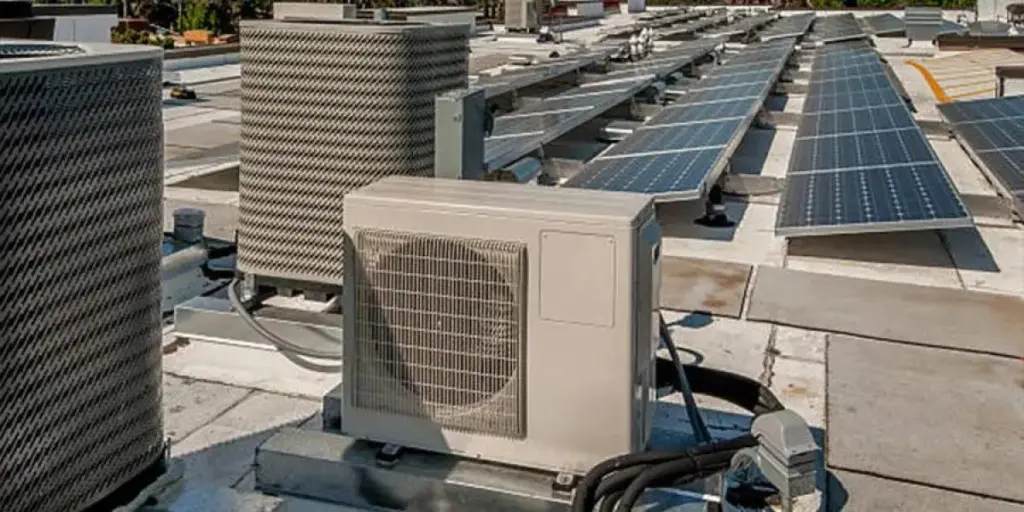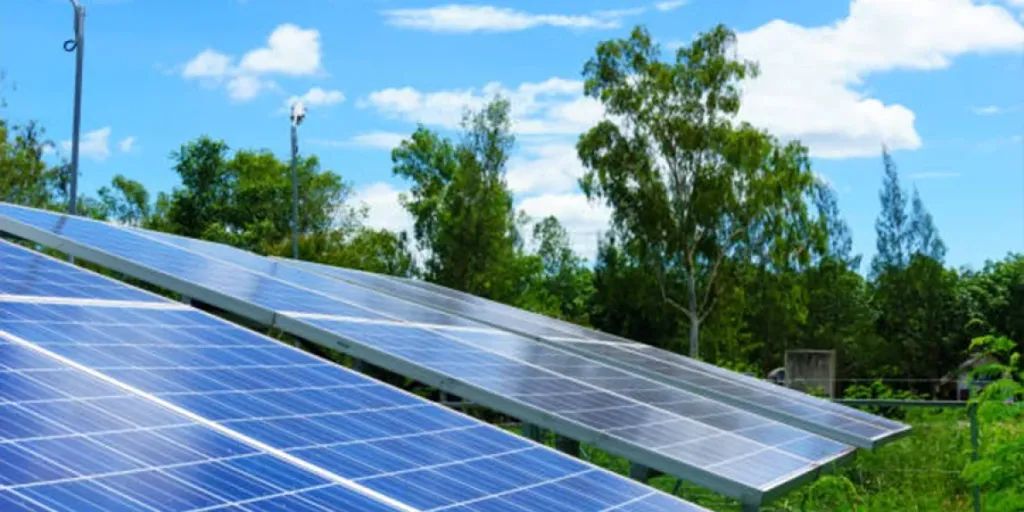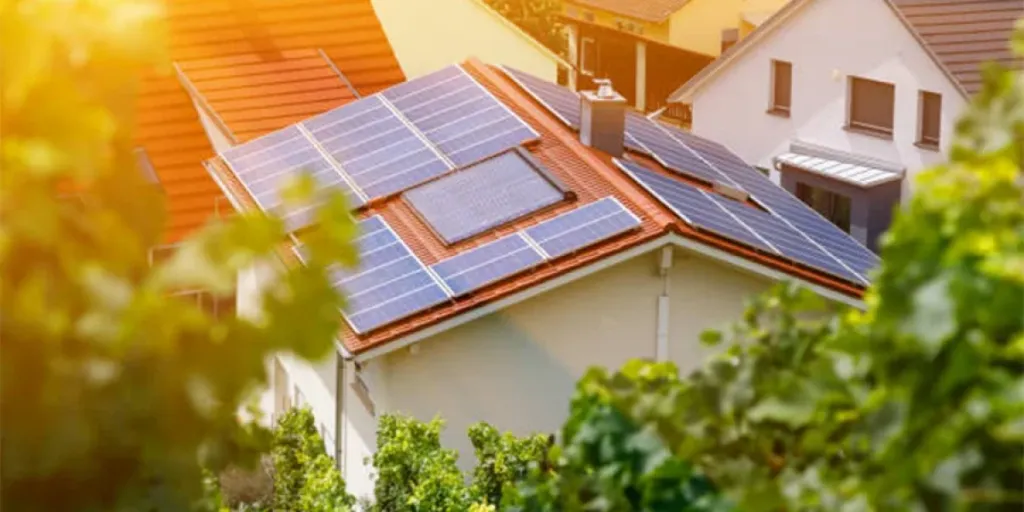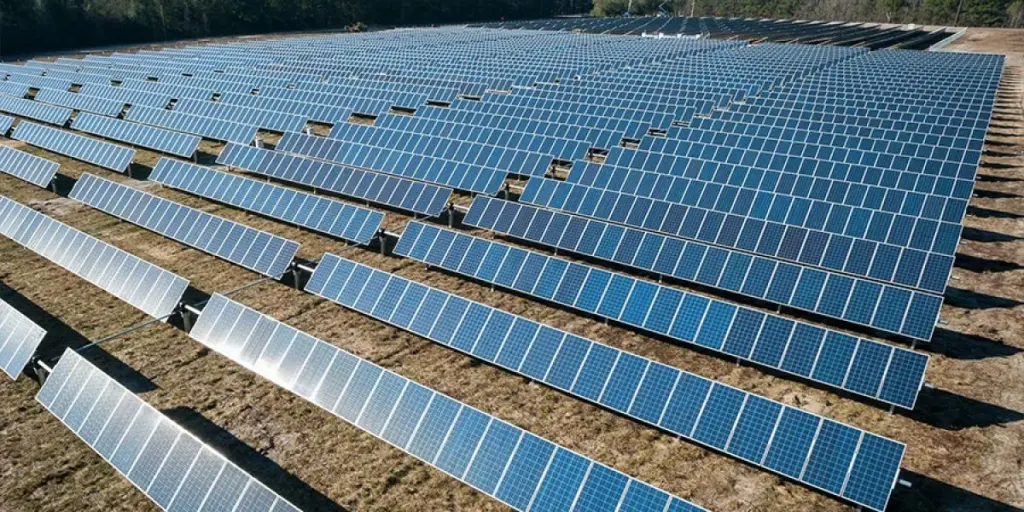Solar-powered air conditioners are undoubtedly the future of home cooling. These genius machines have been tested and trolled for years, but recent technological advances have made them a more viable option than ever before. If you have never heard of solar-powered air conditioners, it is no surprise. But guess what? Today is your lucky day! You are about to read a comprehensive overview on this topic, including reasons why the demand for these brilliant machines has skyrocketed.
Table of Contents
The global solar air conditioner market
Market demand
How to select solar AC units to buy
Types of solar-powered AC units
Advantages of solar air conditioners
Key parts of solar AC units
Conclusion
The global solar air conditioner market
The global solar air conditioning market was valued at US$ 539.4 million in 2020 and will reach US$ 625.6 million by the end of 2027, growing at a CAGR of 2.5% throughout this period. This rapid market growth is majorly attributed to changing lifestyles and demand for increasing comfort among people. A significant factor that has led to a spike in the global demand for solar AC units includes increased government initiatives to enhance the share of solar energy in power consumption. The growth is also attributed to the increasing awareness of solar air conditioners among consumers and the growing adoption of these products in residential applications.
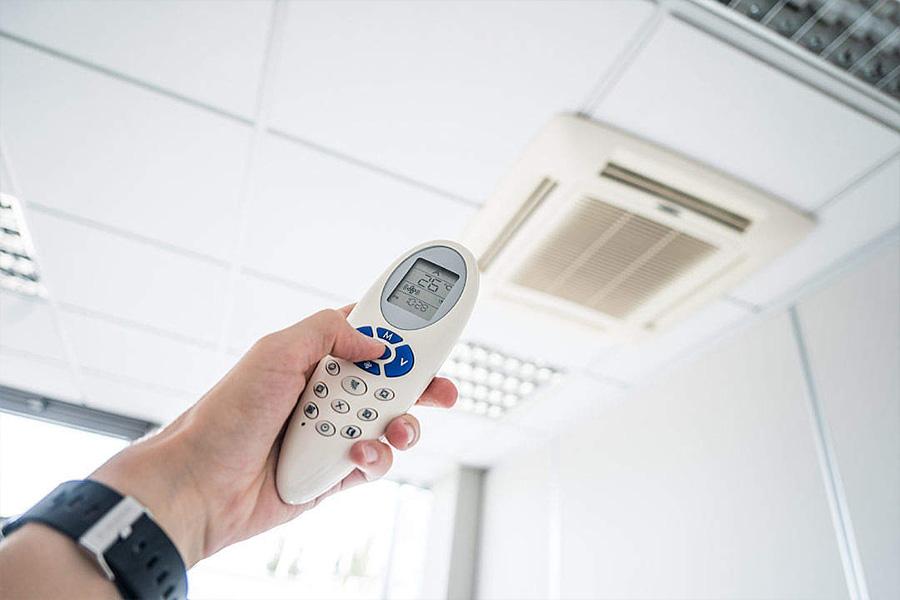
Market demand
The huge global demand for solar air conditioners is attributed to these reasons:
Lifestyle
Solar air conditioners emit less carbon dioxide, which is better for the environment. In addition, solar air conditioners are generally quieter than traditional air conditioners, making them ideal for use in places where noise pollution is a concern.
Comfort
Solar air conditioners can cool a home or office space quickly and efficiently, without the use of harmful chemicals or Freon. In addition, solar air conditioners can help to improve indoor air quality by filtering out dust and other particles from the air.
Global temperatures
Rising global temperatures are resulting in increased demand for solar AC units. This is because solar AC units are more efficient in hot weather. They use the sun’s energy to power the unit, which means they do not have to rely on traditional electricity sources. This makes them a more sustainable option for cooling your home or office.
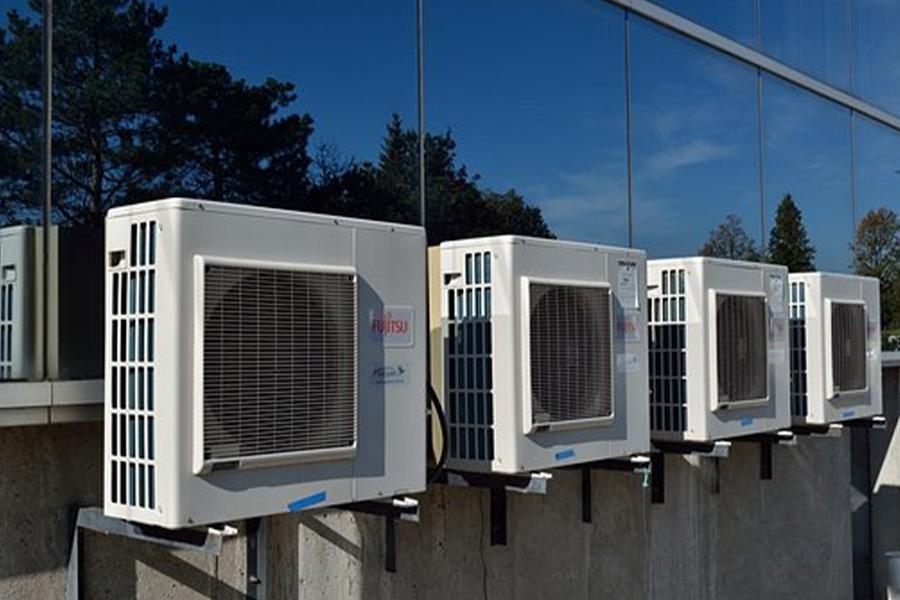
How to select solar AC units to buy
Solar air conditioners are one of the most popular types of air conditioners on the market. There are many different brands and models to choose from. So, what are the factors to consider before buying a solar air conditioner?
Climatic conditions
Solar air conditioners work best in sunny, warm climates. If you live in an area with cooler temperatures or significant rainfall, you may want to consider another type of air conditioner. Other important factors to keep in mind include the size of your home, the efficiency of the unit, and the upfront cost.
Functionality
The size of the unit is going to be a major factor in your decision-making process. You will want to make sure you choose a unit that is appropriately sized for the space you are trying to cool. In addition, Solar air conditioners require very little maintenance, but it is still something you will want to keep in mind.
Budget
While the initial investment may be higher than a traditional air conditioner, over time you will save money on your energy bills. If you select a unit that is too small, it will not be able to effectively cool your space. Conversely, if you select a unit that is too large, it will use more energy than necessary and end up costing you more money in the long run.
Types of solar-powered AC units
There are two main types of solar air conditioners available on the market today. These are
DC solar air conditioners
This type of air conditioner uses a photovoltaic (PV) panel to convert a large percentage of the sunlight that hits them into electrical energy, which can be used immediately to power the air conditioner. This makes DC solar air conditioners much more efficient than other types of solar-powered air conditioners that rely on battery storage to power them.
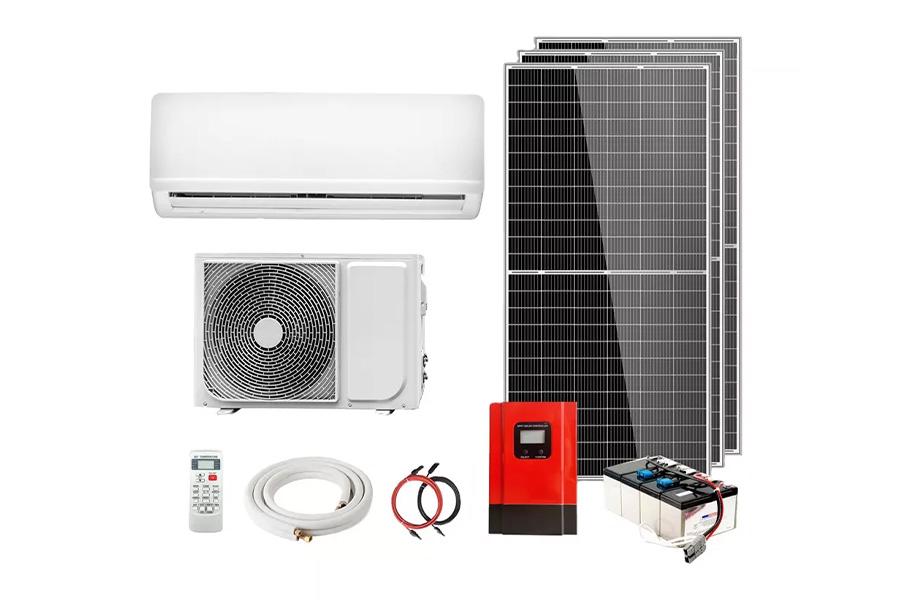
AC solar air conditioners
An AC solar air conditioner is a type of solar-powered air conditioner that uses an alternating current (AC) instead of a direct current (DC). It uses a photovoltaic (PV) system to convert sunlight into electricity that powers the air conditioner. AC solar air conditioners are available in a variety of sizes and styles, so you can find one that fits your needs. ACSCs can be used in both off-grid and grid-tied applications. ACSCs use a compressor to convert the AC into DC, which then powers the air conditioner. The compressor is typically located outside the home and the AC unit is inside.
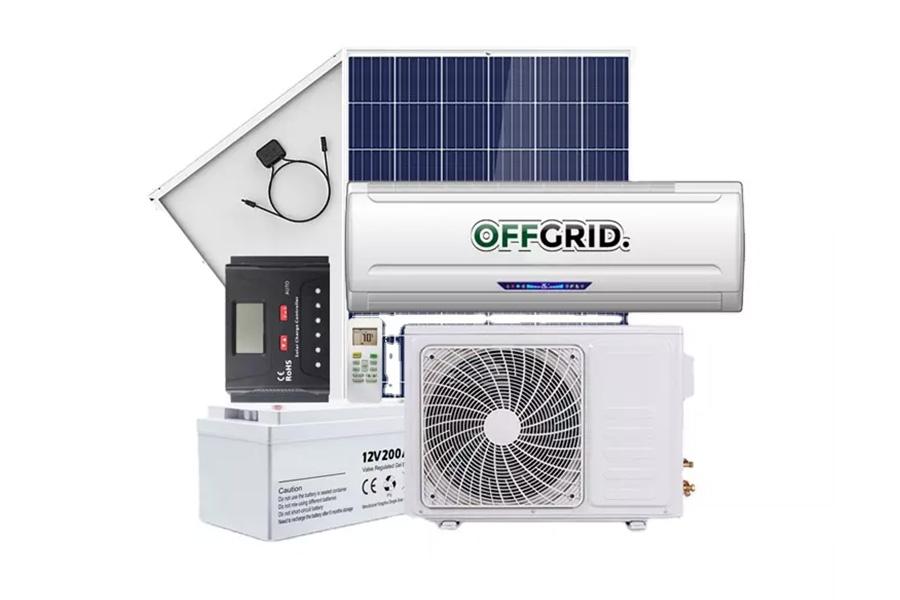
Advantages of solar air conditioners
There are several compelling reasons why solar air conditioners are unparalleled.
Efficiency
Solar-powered air conditioners convert sunlight into electricity through photovoltaic cells, also known as solar panels. When sunlight hits the solar panel, the photons knock electrons loose from their atoms. These free-floating electrons are then drawn into a circuit where they can be used to power an air conditioner. Solar panels convert sunlight into electricity with very little wasted energy.
Reduced electricity costs
Solar power can be used to power air conditioners, which can significantly reduce your monthly electricity bill since these air conditioners require less electricity to operate. In addition to reduced electricity costs, solar-powered air conditioners are very reliable, meaning that you are less likely to experience blackouts or brownouts during peak demand periods.
Durability
Solar-powered air conditioners are designed and built to last for many years, with some models lasting up to 20 years. This is because solar-powered air conditioners do not have any moving parts, which means there are fewer opportunities for parts to break or wear out.
Reduced greenhouse emissions
Solar-powered air conditioners use the sun’s energy to operate, so they do not require electricity from power plants. Power plants generate greenhouse gases when they produce electricity, so using solar-powered air conditioners can help reduce emissions from power plants.
Noise reduction
Solar-powered air conditioners are not only more environmentally friendly than traditional AC units, but they also tend to be much quieter. This is because they do not rely on fans to cool the air. Instead, they use a simple absorption process. Therefore, these machines tend to be much quieter than traditional air conditioners, making them ideal for use in areas where noise reduction is important, such as bedrooms and offices.
Key parts of solar AC units
There are several important parts of a functional solar air conditioner:
Evaporator
The evaporator works by circulating a refrigerant through a series of coils that are exposed to the outside air. As the refrigerant passes through the coils, it absorbs heat from the air, which lowers the temperature of the air inside the building.
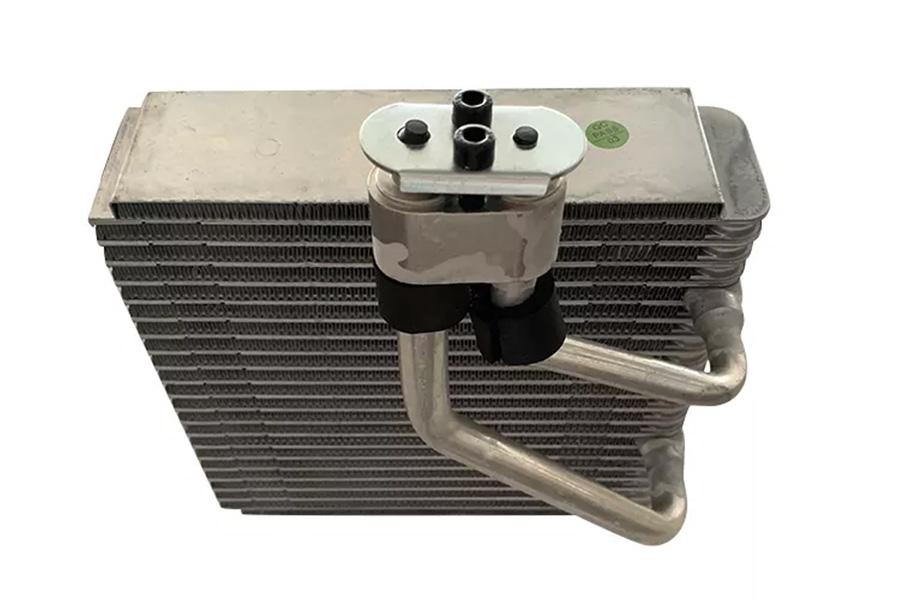
Condenser
The condenser is responsible for converting the refrigerant from a gas to a liquid. The refrigerant is then circulated through the evaporator coils, where it absorbs heat from the air inside your home. The cooled air is then circulated back into your home, and the cycle repeats itself. The condenser is typically located outside of your home, and it is important to make sure that it is clear of any debris or obstructions.
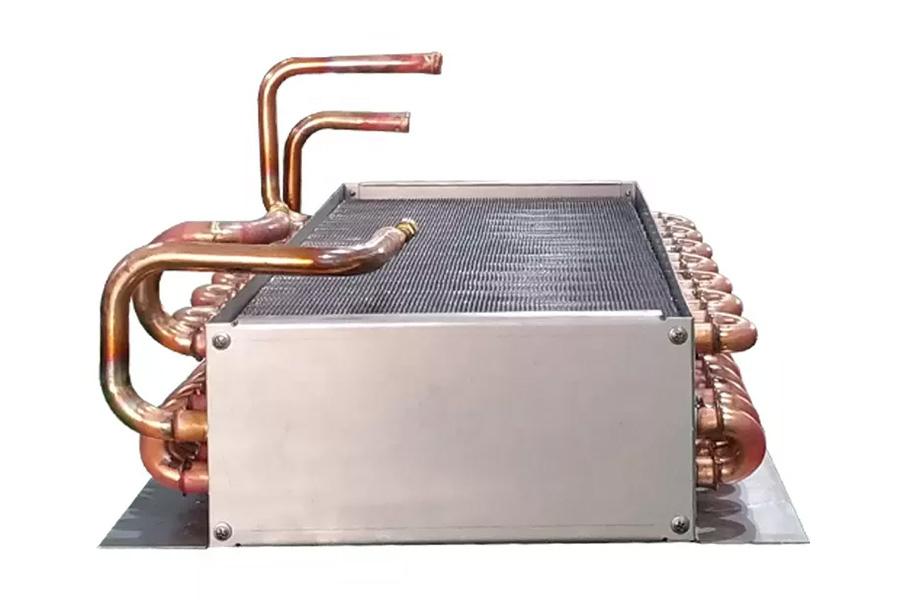
Expansion valve
The expansion valve is an important part of a solar-powered air conditioner because it helps maintain optimal performance by regulating refrigerant flow. If too much refrigerant flows from the evaporator to the condenser, it can cause problems such as icing and compressor failure. Conversely, if too little refrigerant flows from the evaporator to the condenser, it can cause the air conditioner to overheat and shut down.
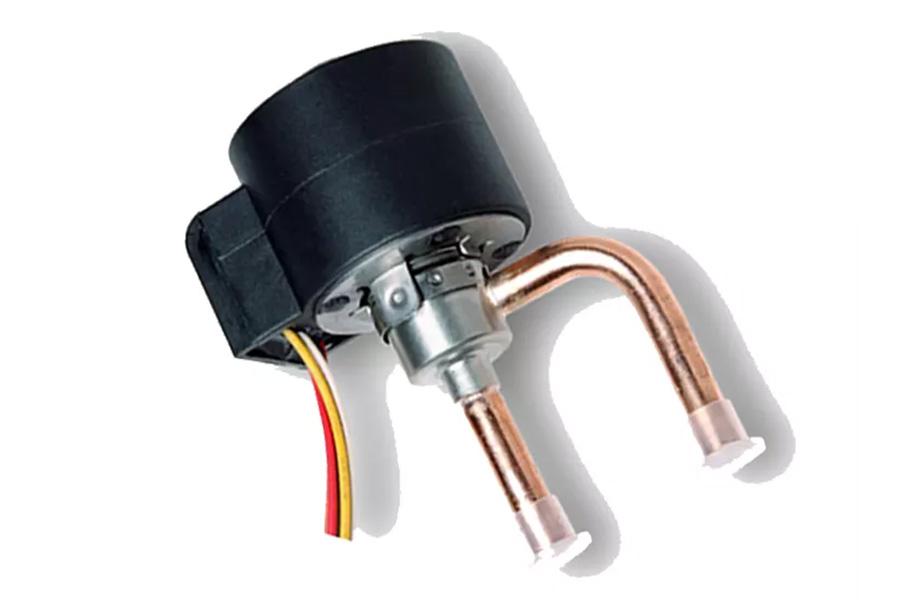
Compressor
A compressor is a mechanical device that increases the pressure of a gas by reducing its volume. It is the most important part of the air conditioner because it pumps refrigerant through the system and is responsible for cooling the air.
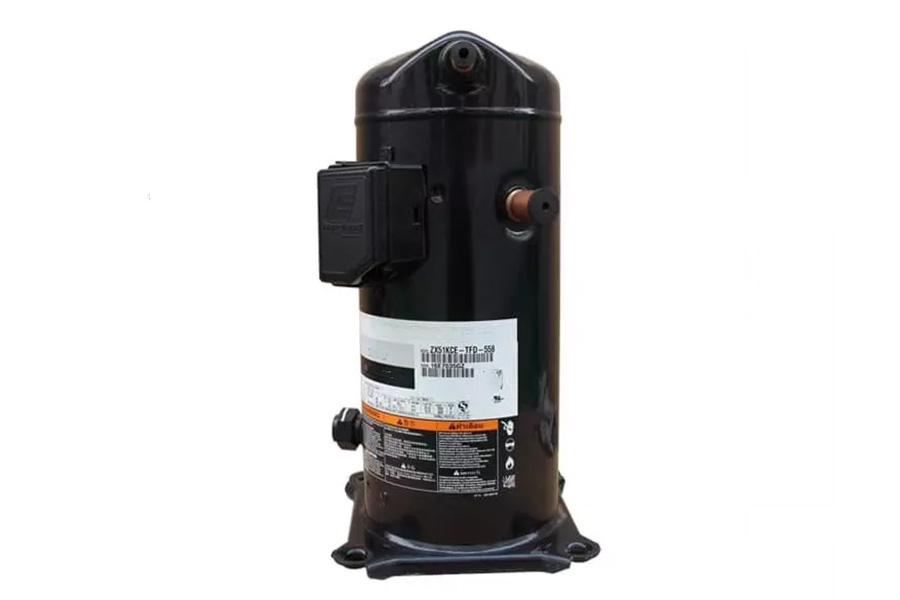
Conclusion
Solar air conditioners are becoming more and more popular each year as people realize the many benefits they offer. Not only do solar ACs help save money on energy bills, but they also help reduce carbon footprint and improve the quality of indoor air. For more information on the latest trends in solar-powered installations, dive into this blog post.
